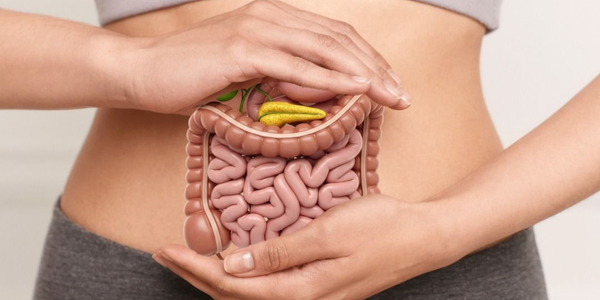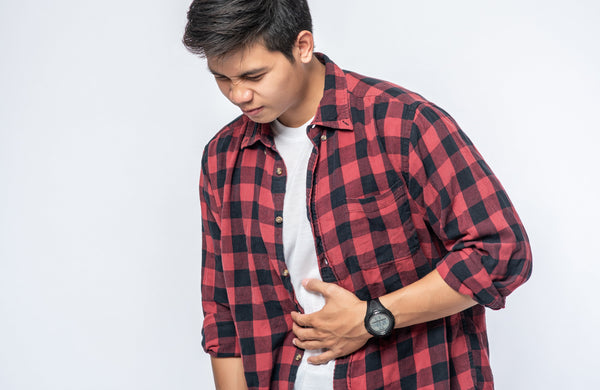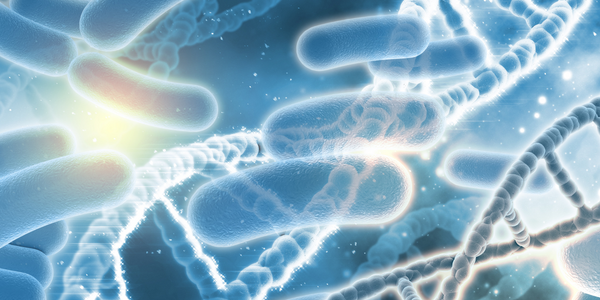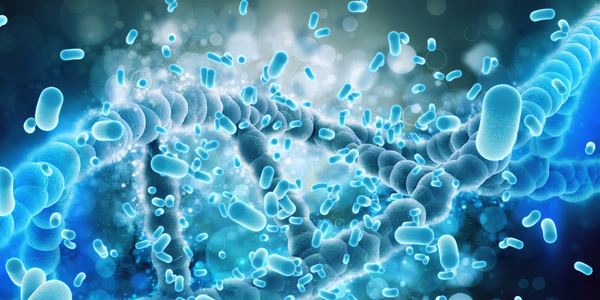Bloating. Most of us have experienced this at one time or another! Sometimes it comes with pain and cramping, or it can just be the bloating itself. Either way it can really affect your self-confidence, put you off wearing your nice clothes and make you stress and worry about what (or if) to eat. This loss of self-confidence can also make you avoid social events and intimacy. Bloating tends to correlate with lower energy levels too.
I myself tend to get a fair bit of bloating, but I now take steps to avoid it. I do notice though that if I don’t take my own advice for a couple of days, the bloating definitely returns.
So why does it happen? As with anything gut related, there could be a hundred reasons. I will cover a few of the main ones.
Food Allergy or Intolerances
Very often, bloating is part of an adverse reaction or a food allergy. Some common culprits are gluten, dairy, soy, corn, legumes and fructose. The free way to work out if food might be setting you off is to keep a diet/symptom diary for a week and see if there is a pattern. It might feel like all food gives you bloating. If that is the case, try eliminating the common culprits for a week and see if you notice a difference.
There is also food intolerance testing widely available to speed up this process.

Bloating: Eating Habits
How do you eat your meals? Do you eat in a rush, shoveling in food mindlessly while doing other tasks? Do you stare at your phone or TV without thinking about the food?
Never undervalue the importance of mindful eating! It activates the parasympathetic arm of your nervous system, which is literally nicknamed the ‘rest and digest’ state. This state allows digestion to occur efficiently and correctly, meaning that food gets broken down properly, where it should, without causing issues.
Try committing to mindful eating techniques like chewing food 20 times per mouthful, looking at the meal and thinking about how grateful you are to have the food (when for many others, food is not easily available), and taking some nice deep breaths.
Low Stomach Acids
I spoke about this in my post on reflux. Stomach acid is associated with heartburn, but actually, it is so important that we have enough of it to properly break down food - particularly protein - and kill infections. When you don’t have enough stomach acid, the food particles that hit your small intestine are too large, and this causes bloating and discomfort as the small intestine can’t absorb it.
For the treatment for low stomach acid, add 1 tablespoon of apple cider vinegar or a squeeze of fresh lemon juice to water and sip with your meal. You can also do this if you feel bloated after eating.

Fluids
Aside from the lemon water or apple cider vinegar, it is actually not a good idea to have water, tea or coffee with a meal. Water actually dilutes your stomach acid, making the environment less acidic and less able to break down foods. Tea and coffee inhibit absorption of nutrients, which can also cause bloating.
These drinks should be consumed one hour away from meals if possible.

Portion Control
I can’t talk about bloating without talking about portion control! Your stomach is actually only the size of your fist - it expands to let in food. Think about that when you look at your plate…do you think your stomach has a lot of work to do?
This doesn’t mean that meals have to be tiny. The following is a good guide:
- Protein - size of your palm
- Fist - equivalent to 1 cup of grains, fruit or vegetables
- Cupped hand - equivalent to 1/2 cup nuts
- Thumb - equivalent to 2 tablespoons nut butter
Thinking about meal times, non-starch vegetables should fill about half of your plate. One quarter can be protein, and one quarter can be starchy vegetables like potatoes, pumpkin, carrots, peas or corn. The starch portion could also be a nice wholegrain like brown rice, quinoa or buckwheat.
About Sarah Spann
Sarah Spann is a Holistic Gut Health Consultant based in Brisbane, Australia. As an author, speaker, clinical nutritionist and wellness coach, she is dedicated to changing the paradigm of gut health and helping her clients to get back the freedom, energy, and vitality their digestive issues have taken away. Sarah’s passion is in empowering people to nurture themselves back to their most vibrant health so they can thrive in their lives.
Sarah was drawn to nutritional medicine after a long history of poor gut health including her diagnosis of celiac disease. With over 10 years of combined personal and clinical experience, and through working with many clients, Sarah has a deep understanding of the unique and holistic approach required to facilitate long-term gut healing.
Sarah’s qualifications include a Bachelor of Health Science (Nutritional Medicine) and an Advanced Diploma in Nutritional Medicine. She is a registered nutritionist with the Australian Traditional Medicine Society.
Her work has been featured on Healthline, Food Shopper, and Health Magazine UK, amongst others. She has also been featured in many interviews including the Humanley podcast, eHealth Radio Network and Ticker TV.
You can find Sarah at her website https://sarahspann.net or Instagram @therealsarahspann. Her book, Mind the Gut, is available on Amazon.


























Leave a comment